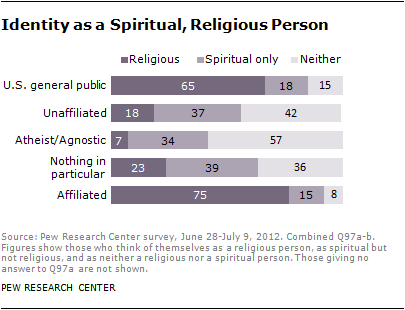Amy at Texas Faith: Will spirtually unaffiliated baby boomers return to religion in senior years?

TEXAS FAITH: Will baby boomers be the next source of growth for religion in America?
By
Let’s return to Frank Newport’s book, God is Alive and Well: The Future of Religion in America. I did an interview with Newport, Gallup’s editor-in-chief, for our Points section on Easter Sunday. As part of the interview, he talked about the impact baby boomers could have on religion as they retire.
We’ve certainly heard a lot about how those of us who are boomers will affect entitlement programs like Medicare and Social Security. But I really had not thought much about how this generation of Americans could affect religion.
Newport’s point is this: If boomers become like elderly Americans of the past, they will become more religious as they enter their senior years. Of course, boomers being boomers, they may defy that trend. But if they don’t, they could become a major source of growth for religion in general and various faiths in particular.
That would be interesting since we are reading about the decline of membership in some traditions, like mainline Protestant churches. Could boomers actually reverse those trends?
I don’t know, but I would like to hear your thoughts about this question:
As baby boomers begin to retire, what is it that your faith tradition could offer to those in that generation who do not have a particular religious belief? Or, to put it another way, could boomers be your next source of growth?
AMY MARTIN, Executive Director, Earth Rhythms; Writer/Editor, Moonlady Media
Social media has supplanted Sundays for many. This won’t change. The networks and groups Boomers created for support with their family and all else in their life are still in place. And the things that found unappealing in many traditional churches in the first place — the politics, the power squabbles, the exclusionary doctrines — are also still there. Why would Boomers change those values in their old age? Do Republicans become Democrats when they need Medicaid?
As someone whose events and writings appeal to the spiritually unaffiliated of the Boomer age, we are the growth segment of faith. Yet our expansion is coming about in surprising ways. Many of my conversations are with deeply secular friends, some who call themselves atheist, as together we redefine the conception of God. My mysticism becomes one that works organically with the ever-unfolding developments of science, and they broaden their view to a divine that is beyond their clichéd micro-managing white-bearded old man in the sky.